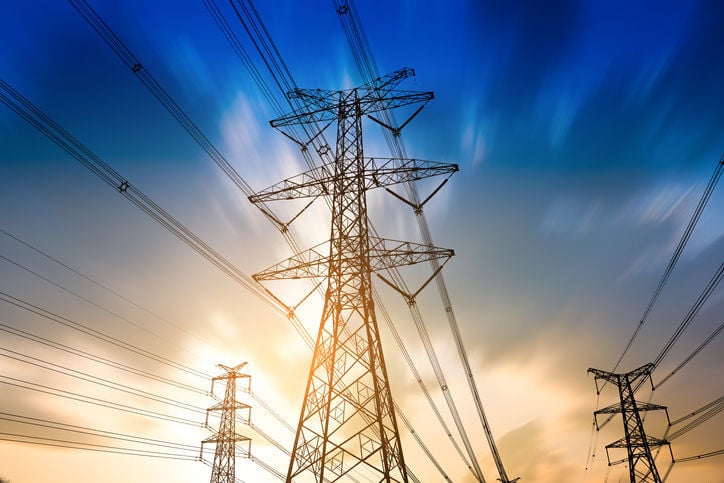Customers of Tucson Electric Power and other state-regulated utilities would get further protection from disconnection during periods of extreme heat or cold, under tentative rules approved by the Arizona Corporation Commission.
But the new regulations won’t replace current emergency rules until they are finalized, likely next year, and the commission wants to gather more data on the impact of shutoff to better gauge the impact of the current, emergency shutoff moratorium that spans June 1 through Oct. 15.
The Corporation Commission this week adopted draft rules that would add a temperature threshold of 95 degrees to the current calendar-based moratorium.
The emergency shutoff ban was adopted in June 2019, following the heat-related death of an Arizona Public Service Co. customer whose power had been turned off for nonpayment.
Last year, the ACC started the moratorium early on March 13 to help customers cope with the COVID-19 pandemic, and TEP and other utilities voluntarily extended it through the end of the year.
The new rules, which also would raise the level of past-due balances that could trigger a shutoff to $300 for electric customers and $100 for gas customers, will be submitted for review and a formal rule-making process that likely won’t be concluded until next fall.
Until then, the current June-October disconnection moratorium imposed under emergency rules passed in June 2019 will remain in place for TEP, Arizona Public Service Co. and TEP’s sister rural utility, UniSource Energy Services.
The state’s electric cooperatives will continue to follow disconnect rules individually approved as an alternative to the emergency rules, with most suspending disconnects based on National Weather Service extreme-weather advisories.
The proposed new rules were adopted by the commission Thursday on a 3-2 vote, despite the objections of Tucson Electric Power Co., which wanted to suspend shutoffs based on National Weather Service extreme-weather advisories or a much shorter calendar-based period.
State-regulated public gas and electric utilities also would be banned from shutting off service to customers when the temperature falls below 32 degrees.
The Corporation Commission’s staff had recommended that the commission allow utilities to choose among several measures to dictate when to suspend disconnections because of hazardous weather, including the June-Oct. moratorium; a temperature-based standard of 100 degrees and 32 degrees; based on National Weather Service advisories; or when the commission itself determines that weather conditions are dangerous.
But consumer advocates including the state Residential Utility Consumer Office opposed giving the utilities the ability to choose their method of determining when to suspend shutoffs, and commissioners had their own ideas.
The commission approved an amendment offered by Commissioner Anna Tovar that would prohibit electric utilities from shutting off electricity either when the temperature is above 95 degrees, or between June 1 and Oct. 15 each year.
“Public safety and health were my top priorities,” Tovar, a Democrat serving her first term, said in a statement after the vote. “Extreme heat puts the most pressure on those who can least afford to protect themselves.”
Proponents of the lower temperature-based limit included AARP Arizona, which argued that seniors are especially vulnerable to heat-related death, and National Weather Service advisories or warnings are inadequate.
Last year, Tucson set records for highest average temperature and days over 100 degrees, and Phoenix had its second-hottest year and its most days over 100.
Republican commission members Justin Olson and Jim O’Connor voted against the addition of the temperature standard, as well as the package of proposed rules.
Olson said he was concerned about the impact of bad debt from unpaid bills on other ratepayers and the prospect of some customers building up arrearages they can never pay back.
“A substantial concern is that we unintentionally create policies that drive up rates for ratepayers and an unintentional enticement to build up a large amount of debt that they cannot get out from under,” Olson said.
He cited similar concerns over consumer debt voiced by consumer low-income advocacy groups Wildfire and the Arizona Public Interest Research Group Education Fund.
When it came to voting, Tovar and fellow Democratic Commissioner Sandra Kennedy were joined by the commission Chairwoman Lea Marquez Peterson.
Peterson, a Tucson Republican, said she wanted to keep the current rules process going, noting that the commission could make changes to the final rules based on additional required data about shutoffs and their impact this summer.
Representatives of TEP and APS, which had argued for a shutoff ban based on National Weather Service advisories, said they were concerned about customers building up large arrearages that would become uncollectible and ultimately have to be recovered through rates.
But John Coffman, an expert witness for AARP Arizona, said utilities nationwide end up fully collecting all but 1% or 2% of their outstanding delinquent accounts.
“Arrearages may rise, but ultimately about 99% of people do pay through collection or when they have to,” said Coffman, a consumer advocate and utility lawyer based in St. Louis.





